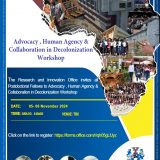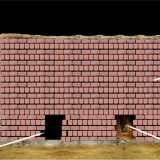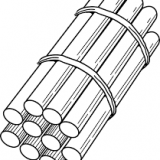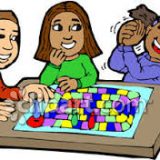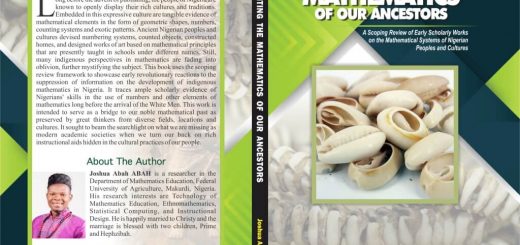Communique Issued at the end of the 2024 Workshop on ADVOCACY, HUMAN AGENCY & COLLABORATION IN DECOLONIZATION
![]()

Communique Issued at the end of the 2024 Workshop on ADVOCACY, HUMAN AGENCY & COLLABORATION IN DECOLONIZATION
Overview
As part of the comprehensive programme for Postdoctoral Research Fellowship, the Research and Innovation Directorate of the University of Zululand, South Africa, put together a special capacity-building workshop on ADVOCACY, HUMAN AGENCY & COLLABORATION IN DECOLONIZATION. The workshop was held on the 5th and 6th of November 2024 at Umfolozi Hotel Casino, Empangeni, KwaZulu Natal Province, South Africa.
The workshop was declared open by Prof. Byron Brown (Director: Research & Innovation) on Tuesday 5th November 2024 with a charge to attendees to become active agents for change in the “Node for African Thought” agenda of UNIZULU. He then introduced the workshop facilitator, Advocate Taimu Shem, a seasoned legal practitioner with almost 30 years of practice experience across Southern Africa. The focus of the Day 1 discussion was a “Brief Introduction to Intellectual Property (IP) Law”, while deliberations of Day 2 were centred on “Collaborative Models for Change”.
Workshop Deliberations
A unique feature of the workshop was the open discussion format adopted by the Advocate, creating an ambient environment for individual perspectives of African Indigenous Knowledge Systems (AIKS). The discussions were supercharged, rich and engaging, given the wide cultural background of the participants. Despite the multicultural views of attendees, there was a consensus on the need to protect Africa’s collective wisdom. The need to speak out and give dignity to our continent by rediscovering our cosmology, as academics, was seriously emphasized.
The Workshop noted that IPs are assets of value that are the products of the mind. The concept of IP is about legal control, with whoever “gets there first” having the control. Whoever documents first has legal control. However, there was a long debate among Workshop participants about how the law of property could apply to the African “ubuntu” context, where knowledge is co-owned for the benefit of the larger community. Again, the consensus reached from the deliberations is the need to craft regulations that take into consideration the uniqueness of each holding community, giving the people the opportunity to benefit from their collective wisdom. There can be a new regulatory regime for our AIKS by tapping into existing international, continental and regional conventions to domesticate IP protection for the peoples and culture of Africa. South Africa, as a country, already has some customary laws to protect some cultural heritage linked to economic development. Such legislation and others being advocated are meant to socially and culturally improve the situation of our people.
Reflections during the Workshop indicate that the first tactical lesson is to avoid the same mistake of not recording as our ancestors made, considering the need to safeguard our cultural heritage. Further research is required to continue to contribute to the knowledge-building system, including AIKS IP laws. As researchers, we must be willing to use African theories as a lens to interpret African-based research. We must learn to write policy notes, policy briefs and policy scripts that will extend our research works beyond mere citation to actionable frameworks for action. This will be remembered as our actual impact and contribution to the Decolonization Movement. Within the present-day capitalist market system, we can market, rename and argue African ideas to the world. This underscores the necessity to develop a new system of AIKS IP regulation.
The Workshop pondered on a key question: why are community issues not as prominent as the politics-driven human rights issues across Africa? There must be legal and institutional reforms to look into these concerns. A new framework of regulation can emerge that can be standardised and regulated. The process may not be easy, but it can be done. The Decolonization Movement must work as an entity, targeting students and youths via awareness campaigns across social media.
Group Discussions/Recommendations
The high point of the Workshop was the group-based discussions on “Developing Ethical Research Practices and Methodologies that respect Indigenous Knowledge Systems and Indigenous Intellectual Property.” Three groups were formed to brainstorm separately on three topics: “Protecting Indigenous (Domestic) IPs: Challenges, Opportunities and Responsibilities as Researchers”; “How do we Decolonize/Deconstruct our Methodologies of Research?”; and “What is the Research Gap in the Integration of IKS within Western Methods?”. After long deliberations at the group level, each group made a presentation of their resolutions.
Group 1 emphasised the need to properly classify IKS into Artefacts, Cultural History, and Traditional/Herbal Medicines. For artefacts, recognition can be done through community museums prepared to take care of the artefacts within the community; patenting of the artefacts; identifying trademarks e.g., different designs used in basket making, pottery and materials used; and encouraging ethnographic research between researchers and community members. Specific research methods may entail the use of video recordings to take pictures and narratives of the indigenous holders’ and practitioners’ views and knowledge in their pure form. In this respect, the willingness and the encouragement to do the research is key. There is also the necessity for the use of local language within a local setting to enhance local community participation.
In terms of History and Cultural way of life (ways of knowing and doing), Group 1 recommended that our histories should be integrated into the school curriculum. Storytellers should be brought into the classroom as key informants in knowledge dissemination. Indigenous holders and practitioners need to be identified, located, recognised and used in the protection of IKS. For Herbal Medicine, patronage needs to be redefined. Advocacy is needed to properly project this necessity. Proper packaging of herbal medicines is advocated for in a broader marketing strategy. The key challenges identified by the Group include lack of cultural appropriation, lack of funding, lack of recognition, language barrier, stigmatisation, and inadequacy of law to cover aspects of African spirituality. Group 1 identified opportunities for co-creation as key for the collaboration process where multiple stakeholders will work together, a community-led research base, policy reforms and beneficiation when registered trademarks increase consumer recognition of authentic goods. Researchers’ Responsibilities in this regard will include advocacy, documentation, transparency, accountability, collaboration and adherence to all spheres of ethical considerations.
Group 2 resolved that to decolonise our methods of research, there must be a shift from predominantly Western methodological approaches to the ones that project African perspectives and values. African researchers need to build upon indigenous knowledge systems as foundational elements of research design and interpretation. They must be willing and ready to deploy methods that appreciate and make use of resources and cultural assets already present within African communities. There is the need to use approaches that recognise and affirm our agency as African researchers, while consistently striving for excellence in academic and practical outcomes. African researchers should consider adopting and developing data collection tools that are Africanised, culturally relevant and context-sensitive, using grand research designs and approach questions that address local needs and realities. As researchers, we must engage in participatory and collaborative methods to actively involve communities as co-researchers, valuing their voices and knowledge throughout the process. In addition, African researchers must adopt theoretical frameworks that prioritise communal wellbeing (ubuntu), informed by African cultural values.
The conversation within Group 3 acknowledged that the African domestic knowledge system is distinctive and often misunderstood when viewed through a Western or Eurocentric lens. This knowledge system possesses unique identities that differentiate it from other frameworks of knowledge. This results in methodological challenges. One of the primary challenges in researching the AIKS is the lack of well-documented and widely accepted methodological approaches. Despite having distinct processes for inquiry, these methodologies are often under-represented in academic literature, making it difficult to validate and employ them effectively. Group 3 also noted that language plays a crucial role in communicating African cultural values. The extinction of indigenous languages in some regions of Africa can lead to a disregard for, and a lack of appreciation for, these cultural values.
In the African education system, language serves as a vital tool for transmitting knowledge from one generation to the next, preserving the essence of the African knowledge system. When languages are not valued or adequately taught, it becomes challenging to learn and utilise them properly, further jeopardising the preservation of this knowledge. It is also important to note that the methodologies associated with AIKS have not been fully recognised or validated on a global scale. While these methods have been developed within Africa, they are often tested and embraced only by a limited audience within the continent. Conversely, Western researchers frequently conduct studies abroad and present their findings to African audiences for validation. Research outputs derived from AIKS methodologies often face scepticism and scrutiny, while work produced by Western scholars is frequently accepted, even when it contradicts local ideologies and methodologies. The Group also acknowledged that Data related to the AIKS is often inadequately protected, enabling Western researchers to easily access and sometimes appropriate this information, often claiming it as their own. When Africans seek access to this data, it is frequently unavailable or sold back to them. This misappropriation can lead to biased conclusions and decisions that do not accurately reflect the realities of the African context. There is also the issue of Mindset and Perceptions. The perception of AIKS as inferior to Western knowledge systems is another significant barrier to its propagation. Many individuals view African knowledge frameworks through a lens of inferiority, which undermines the value and relevance of the AIKS. In the same vein, there is a problem with generalisation. Unlike Western knowledge systems, which often seek to generalise findings across varied contexts, the AIKS emphasises presenting situations and issues as they are, grounded in local realities. All these salient concerns call for intensive advocacy for AIKS Research. To ensure the integrity and relevance of the AIKS, research must be conducted according to its unique methodologies, without compromise. The findings should be tested, communicated, and integrated within the African context, across the entire continent. It is essential to embrace and reaffirm the outputs of AIKS research, promoting their significance both within Africa and on the global stage. Conclusively, the AIKS represents a rich knowledge system that requires respect, documentation, and validation, in its own right. Efforts must be made to protect its methodologies, languages, and data while advocating for its recognition and acceptance in the broader academic and cultural discourse.
Conclusion
In light of these fruitful inputs from the team of scholars attending the ADVOCACY, HUMAN AGENCY & COLLABORATION IN DECOLONISATION Workshop, it was agreed that agentic action is required for the incremental change being canvassed. As a step in the right direction, it was agreed that attendees form a cohesive advocacy working group to continue to research and project the broad ideals of the Workshop. This communique is the first fruit of the ADVOCACY, HUMAN AGENCY & COLLABORATION IN DECOLONISATION WORKING GROUP formed at the Workshop. Other efforts for edited books, symposia, workshops, conferences and media campaigns are also in the pipeline. The group is multinational, and multicultural and welcomes scholars and enthusiasts of our cherished African ways to join hands in forging a common front that glorifies our rich African heritage. It has been acknowledged elsewhere that the process of change may not be easy, but it can be done if each one of us contributes our little quota.
Appreciation
Participants of the workshop on ADVOCACY, HUMAN AGENCY & COLLABORATION IN DECOLONISATION sincerely appreciate the Directorate of Research and Innovation of the University of Zululand, South Africa, for providing the platform for the deliberations documented in this communique. The emerging network of scholars formed at this Workshop looks forward to future collaborations in realising the Node for African Thought worldview.
Signatory
This communique was co-edited and endorsed by the participants of the workshop on ADVOCACY, HUMAN AGENCY & COLLABORATION IN DECOLONISATION.
Views: 67


